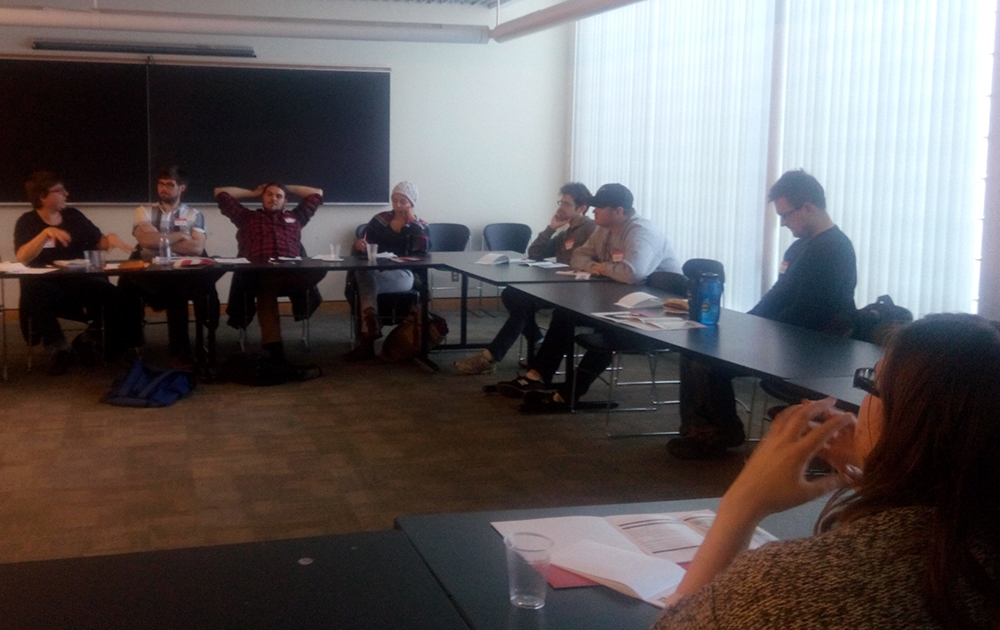Kanchi Uttamchandani | Assistant News Editor
Featured image: CUPE members are extremely proud of the 2015 strike that produced historic gains and mobilized students in unprecedented ways. | Kanchi Uttamchandani
York and U of T’s faculty unions, CUPE 3903 and CUPE 3902, respectively, reflected on their 2015 strikes in a panel-style discussion hosted at Keele campus last week. While the strikes triggered mixed feelings, the panel was productive, brainstorming actions from their shared experiences.
“Unions are powerful vehicles of [the] workers’ struggle, but they are also sectional organizations; they divide workers in the very process of uniting them,” said CUPE 3903 member Kyle Bailey.
Bailey asserted that social movement struggles against austerity require cooperation between unions, suggesting that 3903, 3902 and other locals could pool their resources, share risks and make collective decisions.
He described a de-organizing working model that unions could adopt, an approach that blurs the line between workplace and community organizing, saying that it is the workers themselves, not union officials or activists, who need to be in power to lead their own struggle.
“The lesson here for the local is that we need to build a bigger and more representative bargaining team. Bargaining has the potential to increase rank and file participation and also to convince disillusioned workers that the union is their voice in the workplace,” added Bailey.
Ellie Ade Kur, CUPE 3902 member, highlighted that when people talk about strikes, they tend to think in polarized terms of union versus employer, but tensions also exist within unions.
She spoke about equity issues, such as alleged sexual violence on picket lines, violence against women and racism, allegedly prevalent in unions, and maintained that union officials always give a consistent response to stop thinking about interpersonal conflict and to instead focus on the union’s goals.
“The issue now is that we are a union representing a large membership, but we cannot cater to some of the most marginalized communities in our space because we do not value and understand issues of critical equity,” she said.
CUPE 3902 chair Ryan Culpepper defends the union, saying that members are extremely proud of the 2015 strike that produced historic gains and mobilized students in unprecedented ways.
“No political action is perfect, and following the strike, our union undertook a year-long bargaining and strike review to which all members had the opportunity to contribute. The report and recommendations from that review will certainly help us plan better for future labour actions,” he says.
CUPE 3903 spokesperson Maija Duncan concurs, stating that 3903 has taken steady measures to address its shortcomings and acknowledges such panels and other exercises in criticism can make the union’s future successes stronger.
For instance, the Trans Feminist Action Caucus is working to build a sexual assault policy for 3903. “This would be a productive step to give us the tools to address sexual violence and misogyny within CUPE 3903,” she adds.
“Since the end of the strike, we have discussed the creation of a strike manual that would gather all the mistakes made and lessons learned so that we don’t need to reinvent the wheel every time we need to plan a strike.”
“The lack of preparedness was very real,” she adds. “The rank-and-file members of the Strike Committee did their best to prepare for a strike despite the active opposition of our leadership at the time. Without these efforts, we wouldn’t have been able to hold our picket lines at all, but this situation did limit just how prepared we could be.”


